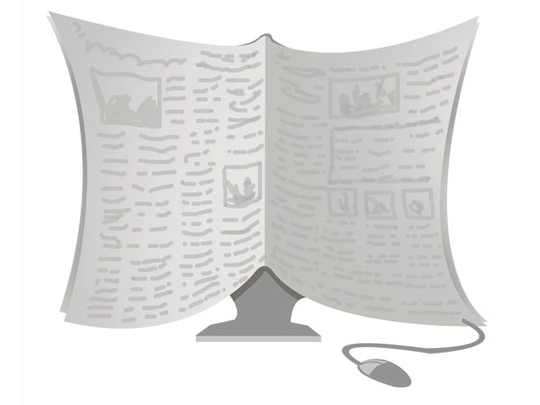
Until today, many people seem to have not understood the real dynamics behind what is often referred to as a ‘battle' between ‘new' and ‘old media'. In our part of the world, the rapidly developing events, sometimes dubbed Twitter Revolutions, which took (and still are taking) place since January have revived this ever-so-interesting debate about ‘new media' (a broad term often used to refer to websites, blogs and social networks).
Putting aside the impact social networks may have had on Arab revolutions for a second; there is something fundamentally wrong with the whole ‘new versus old' argument. This is because this is not the same situation as when the radio was invented, or later the television. It's worth noting that not one form of media has ever cancelled another.
This isn't a similar situation simply because new media isn't really one form of media (print being handicapped by lack of audio/visual abilities) which is competing with another (television or radio), it is in fact all three put together; a single website can provide you with printed, audio and visual content.
In fact, the internet was never a threat editorially, but an opportunity — all that newspapers (used here as an example because most editors blame the web for declining circulation) needed to understand is that they are not in the ‘paper' but rather in the ‘news' business.
The internet has actually helped increase the readership of newspapers as more people log on to their favourite newspapers online. Back in 2007, research conducted by the US-based Project Excellence in Journalism revealed that at a time of declining print-copy circulations, readership has gone up by 2.5 per cent and that the top websites visited for news contained iconic brand names, such as the New York Times.
Now, whereas consumption and sharing of content is on the rise, advertising sales executives may complain that they are not yet making as much money online by selling a banner when they could charge an extravagant figure to fill a coloured page in the print edition or how they can make up for the lost hardcopy sales when people log on to read the news for free. However, as is the case in the business world, you either adapt or die — there are online journals making a lot of money because they realised that their main business is the content itself.
On the other hand, people (often ‘traditional' journalists) also moan about the credibility of bloggers, as they assume that because they had no training or that they are not part of an ‘institution' they may have hidden agendas.
Not only is this an idiotic argument but a very selective one, anyone who has seen the film Shattered Glass (2003) based on a true story of journalistic fraud by the New Republic's reporter Stephen Glass or remembers the Jason Blair scandal at the New York Times would be wise enough to hold his/her peace.
In particular, Arab journalists at state-owned/controlled media outlets who have a conveniently selective agenda when it comes to news should not be the ones to criticise. Yes, bloggers and citizen journalists do make mistakes, some have agendas, others are dishonest — but let us not forget, thanks to them we saw the first pictures of the tsunami, London's 7/7 bombings and some of the disastrous propaganda attempts conducted by ‘traditional' journalists such as last summer's infamous photo-doctoring incident at Al Ahram whereby (now former) president Hosni Mubarak was brought forward ahead of US President Barack Obama.
Back to the Arab revolutions: yes social networks had a role as they helped inform, disseminate, organise events, rally and allowed people to interact. However, revolutions happened way before Twitter was invented and people used everything from smoke signals to flyers to secret handshakes, the difference now is that things happen much quicker.
Having said that, the reality is that the Arab world is still very much television-driven. There is no doubt that a channel like Al Jazeera (Arabic), which attracts nearly 40 million viewers a day, definitely has much greater impact than the internet which in 2009 attracted the same number over a whole year, according to a recent report by the Centre for the US-based International Media Assistance (CIMA) at the National Endowment for Democracy.
Thus it is safer to say that satellite television may have had a bigger impact this time around. Nevertheless, things are set to change when the Arab internet revolution truly arrives as the same CIMA report expects internet users to increase to 100 million in 2015.
Furthermore, during a recent visit to Dubai, Yahoo!'s CEO, Carol Bartz, described the Mena region as "one of the most exciting markets" for her company. According to Bartz, who oversaw her company's takeover of the local Maktoob portal, "Arabic is also one of the fastest growing languages on the internet".
Faisal J. Abbas is a London-based journalist, blogger and social commentator.








